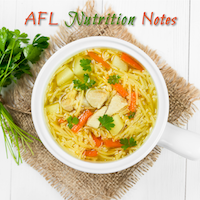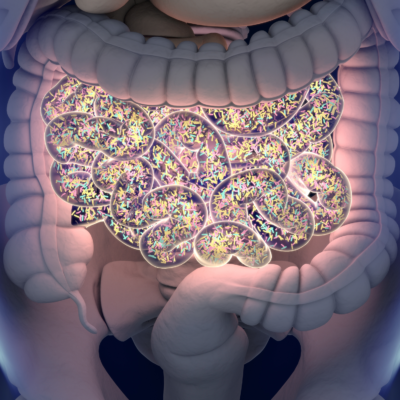Microbiome and Nutrition
The complex community of bacteria, yeasts and viruses living in our intestines, collectively known as the gut microbiome, is shaped, in part, by what we eat. Genetics, environment, and other factors also influence an individual’s microbial community. Research at the NRI investigates these complex relationships and their impact on disease risk. We use animal models and bioinformatics to study the associations between nutritional metabolites, gut microbiome, and health. What happens in the gut doesn’t stay in the gut. Your microbiome can play a role in cardiovascular disease, obesity and diabetes, and even cancer. Our team envisions a future where analysis of your microbiome can determine disease risk, and medical foods can be prescribed to treat and prevent disease by regulating the microbiome.
Publications
Microbiome and Nutrition Publications
2020
Population studies of TMAO and its precursors may help elucidate mechanisms. Meyer K
2019
Association of dietary patterns with the gut microbiota in older, community-dwelling men. Meyer K
2018
Meta-analysis of human genome-microbiome association studies: the MiBioGen consortium initiative. Meyer K
Human microbiota, blood group antigens, and disease. Sumner S
2017
Trimethylamine N-Oxide, the Microbiome, and Heart and Kidney Disease. Zeisel S
2016
Diet and Gut Microbial Function in Metabolic and Cardiovascular Disease Risk. Meyer K
Antibiotic-mediated gut microbiome perturbation accelerates development of type 1 diabetes in mice. Sumner S
Related News
Nutrition Notes from AFL@JWU – April 18
April 18, 2018 – The science on food and nutrients and their relationship to health is complex. Individuals are unique and there are various factors that influence health outcomes. Researchers at the UNC Nutrition Research Institute (NRI) are working to understand the intricacies of diet, nutrients, and their relationship to disease prevention and progression with the goal that general dietary guidance will one day be replaced with customized nutrition recommendations. Current research suggests following an overall healthful diet, rich in plants, that emphasizes fruits and vegetables, whole grains, lean protein, and unsaturated fats, and staying physically active may best support good health. In this program we consider the health benefits of chicken.
April 2018
Gut and Microbiome Study March 28, 2018 – At the NRI, we are conducting pioneering research on the interplay of diet and the gut microbiome in human health. The gut microbiome is a complex community of microorganisms living in our lower intestine; although we have...
Kohlmeier Named Editor-in-Chief of New Journal: BMJ Nutrition, Prevention & Health
March 29, 2018 – Leading healthcare knowledge provider BMJ will launch BMJ Nutrition, Prevention & Health later this year in July 2018 at the 4th NNEdPro International Summit in Cambridge. Co-owned with the NNEdPro Global Centre for Nutrition and Health, the journal is dedicated to publishing high quality, peer reviewed articles that focus on diet, exercise and healthcare technology on health and wellbeing.
Gut Microbiome, Diet and Health
March 28, 2018 – At the NRI, we are conducting pioneering research on the interplay of diet and the gut microbiome in human health. The gut microbiome is a complex community of microorganisms living in our lower intestine; although we have long known of its existence, recent technological advances have allowed us to begin to define the composition and function of this dynamic community. This growing body of research demonstrates vast biologic activity within the gut microbiota, which may have the potential to affect our physiology and help guide health recommendations and interventions.




